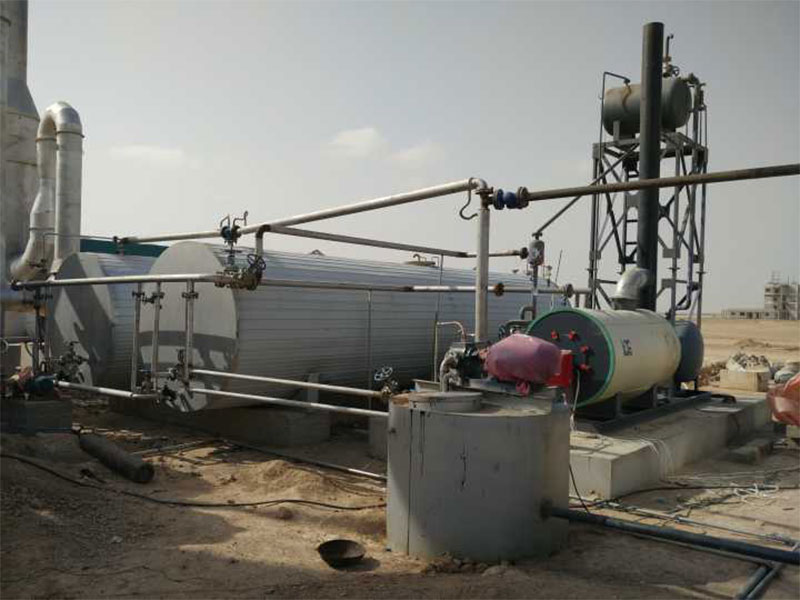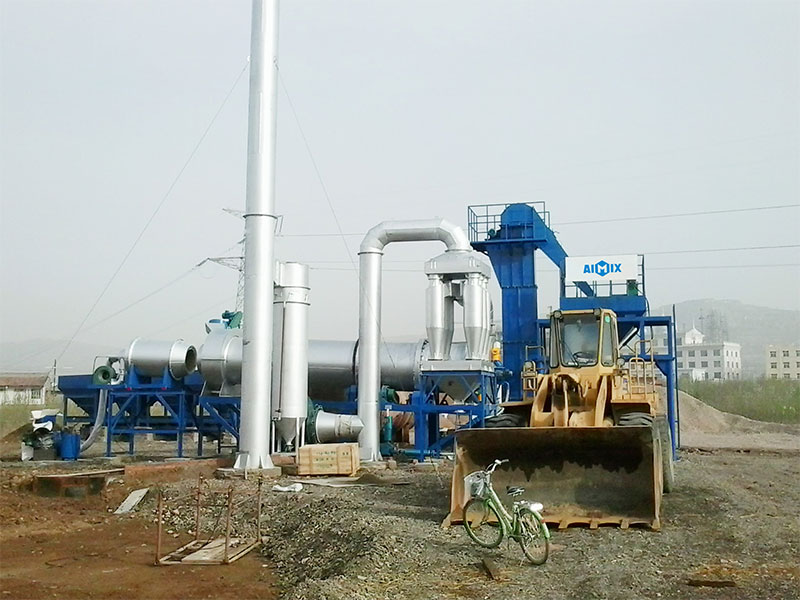In the world of road construction, asphalt mixing plants stand as the backbone of the process, transforming raw materials into the smooth and durable surfaces we drive on. The reliability of these plants is crucial to ensuring the quality and efficiency of road infrastructure.
1. Ensuring Consistent Output:
A stable foundation is paramount to the consistent output of an asphalt mixing plant for sale. The stability of the plant’s structure and components ensures that the machinery operates smoothly, leading to a continuous and reliable production of high-quality asphalt. Consistency in output is crucial for meeting project deadlines and delivering road surfaces that meet stringent quality standards.

2. Structural Integrity for Longevity:
The structural integrity of an asphalt mixing plant forms the bedrock of its longevity. A stable foundation provides the necessary support for the entire plant, from the aggregate bins to the hot mix storage silos. With a solid structure in place, the plant can withstand the rigors of continuous operation, environmental factors, and the wear and tear associated with the production of asphalt over the years.
3. Reducing Downtime:
Stability in an asphalt mixing plant directly correlates with reduced downtime. A stable foundation minimizes the risk of structural issues, malfunctions, and unplanned shutdowns. This reliability translates to increased operational efficiency, allowing construction projects to progress smoothly without the delays caused by unexpected breakdowns or maintenance issues.
4. Optimal Performance in Challenging Conditions:
Stable foundations enable asphalt mixing plants to perform optimally even in challenging environmental conditions. Whether faced with extreme temperatures, heavy winds, or seismic activity, a well-designed and stable foundation ensures that the plant remains resilient. This adaptability is essential for asphalt batching plants located in diverse geographical regions with varying climates and weather patterns.
5. Precision in Asphalt Production:
The stability of an asphalt mixing plant is synonymous with precision in asphalt production. A stable foundation contributes to the accurate calibration and alignment of the plant’s components, ensuring that the right proportions of aggregates, bitumen, and filler are consistently mixed. This precision is vital for achieving the desired properties in the final asphalt product.
6. Safety in Operations:
Safety is a paramount concern in any industrial facility, and asphalt mixing plants are no exception. A stable foundation supports a safe working environment by reducing the risk of accidents or structural failures. This not only protects the plant’s personnel but also safeguards the expensive machinery and the quality of the asphalt produced.
7. Minimizing Environmental Impact:
Stability in asphalt mixing plants goes hand in hand with environmental responsibility. A well-designed foundation helps minimize the environmental impact of the plant’s operations. By reducing emissions, optimizing energy efficiency, and managing waste effectively, a stable plant contributes to sustainable and eco-friendly asphalt production practices.
8. Adaptability to Technological Advances:
The stability of the foundation is a critical factor in the adaptability of asphalt mixing plants to technological advancements. As the industry evolves, plants need to integrate new technologies for enhanced efficiency, reduced environmental impact, and improved quality. A stable foundation provides the necessary support for the incorporation of these innovations, ensuring that the plant remains at the forefront of modern asphalt production.
9. Compliance with Regulatory Standards:
Reliable and stable asphalt mixing plants are more likely to comply with regulatory standards and industry specifications. Meeting these standards is essential for ensuring the quality and durability of road surfaces. A stable foundation supports the overall compliance of the portable asphalt plant for sale, allowing it to consistently produce asphalt that meets or exceeds required specifications.
10. Customer Confidence and Project Success:
Ultimately, stable foundations in asphalt mixing plants instill confidence in customers and stakeholders. Construction companies, government agencies, and project managers rely on the reliability of asphalt plants to deliver successful projects. A stable foundation is a testament to the plant’s commitment to quality, efficiency, and the long-term success of road construction endeavors.
Conclusion:
In the realm of asphalt mixing plants, “Stable Foundations” is not just a phrase; it is a fundamental principle that defines the reliability and performance of these critical facilities. A solid foundation ensures consistent output, longevity, reduced downtime, and optimal performance, contributing to safety, environmental responsibility, and adaptability to technological advances. As we pave the way for the future of road construction, the key to a reliable and efficient asphalt mixing plant lies in its stable foundation – the rock-solid basis for building the highways and byways of tomorrow.
